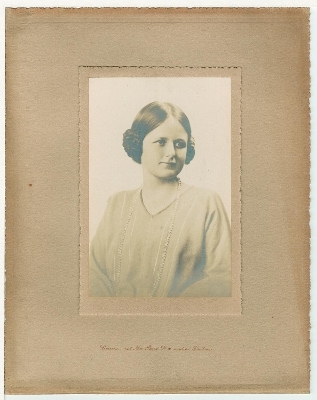
Reframing Bodies
AIDS, Bearing Witness, and the Queer Moving Image
Seiten
2009
Duke University Press (Verlag)
978-0-8223-4583-1 (ISBN)
Duke University Press (Verlag)
978-0-8223-4583-1 (ISBN)
- Titel z.Zt. nicht lieferbar
- Versandkostenfrei innerhalb Deutschlands
- Auch auf Rechnung
- Verfügbarkeit in der Filiale vor Ort prüfen
- Artikel merken
Examines how queer filmmakers and videographers bore witness to the historical trauma of the AIDS epidemic in the late 1980s and 1990s.
In Reframing Bodies, Roger Hallas illuminates the capacities of film and video to bear witness to the cultural, political, and psychological imperatives of the AIDS crisis. He explains how queer films and videos made in response to the AIDS epidemics in North America, Europe, Australia, and South Africa challenge longstanding assumptions about both historical trauma and the politics of gay visibility. Drawing on a wide range of works, including activist tapes, found footage films, autobiographical videos, documentary portraits, museum installations, and even film musicals, Hallas reveals how such “queer AIDS media” simultaneously express both immediacy and historical consciousness. Queer AIDS media are neither mere ideological critiques of the dominant media representation of homosexuality and AIDS nor corrective attempts to produce “positive images” of people living with HIV/AIDS. Rather, they perform complex, mediated acts of bearing witness to the individual and collective trauma of AIDS.Challenging the entrenched media politics of who gets to speak, how, and to whom, Hallas offers a bold reconsideration of the intersubjective relations that connect filmmakers, subjects, and viewers. He explains how queer testimony reframes AIDS witnesses and their speech through its striking combination of direct address and aesthetic experimentation. In addition, Hallas engages recent historical changes and media transformations that have not only displaced queer AIDS media from activism to the archive, but also created new witnessing dynamics through the logics of the database and the remix. Reframing Bodies provides new insight into the work of Gregg Bordowitz, John Greyson, Derek Jarman, Matthias Müller, and Marlon Riggs, and offers critical consideration of important but often overlooked filmmakers, including Jim Hubbard, Jack Lewis, and Stuart Marshall.
In Reframing Bodies, Roger Hallas illuminates the capacities of film and video to bear witness to the cultural, political, and psychological imperatives of the AIDS crisis. He explains how queer films and videos made in response to the AIDS epidemics in North America, Europe, Australia, and South Africa challenge longstanding assumptions about both historical trauma and the politics of gay visibility. Drawing on a wide range of works, including activist tapes, found footage films, autobiographical videos, documentary portraits, museum installations, and even film musicals, Hallas reveals how such “queer AIDS media” simultaneously express both immediacy and historical consciousness. Queer AIDS media are neither mere ideological critiques of the dominant media representation of homosexuality and AIDS nor corrective attempts to produce “positive images” of people living with HIV/AIDS. Rather, they perform complex, mediated acts of bearing witness to the individual and collective trauma of AIDS.Challenging the entrenched media politics of who gets to speak, how, and to whom, Hallas offers a bold reconsideration of the intersubjective relations that connect filmmakers, subjects, and viewers. He explains how queer testimony reframes AIDS witnesses and their speech through its striking combination of direct address and aesthetic experimentation. In addition, Hallas engages recent historical changes and media transformations that have not only displaced queer AIDS media from activism to the archive, but also created new witnessing dynamics through the logics of the database and the remix. Reframing Bodies provides new insight into the work of Gregg Bordowitz, John Greyson, Derek Jarman, Matthias Müller, and Marlon Riggs, and offers critical consideration of important but often overlooked filmmakers, including Jim Hubbard, Jack Lewis, and Stuart Marshall.
Roger Hallas is an assistant professor of English at Syracuse University. He is the coeditor of The Image and the Witness: Trauma, Memory and Visual Culture.
Illustrations ix
Acknowledgments xi
Introduction 1
1. Historical Trauma and the Performance of Talking Heads 35
2. The Embodied Immediacy of Direct Action: Space and Movement in AIDS Video Activism 77
3. Related Bodies: Resisting Confession in Autobiographical AIDS Video 113
4. Queer Anachronism and the Testimonial Space of Song 151
5. Gay Cinephilia and the Cherished Body of Experimental Film 185
6. Sound, Image, and the Corporeal Implication of Witnessing 217
Afterword 241
Notes 253
Bibliography 291
Index 307
| Zusatzinfo | 63 b&w photographs |
|---|---|
| Verlagsort | North Carolina |
| Sprache | englisch |
| Gewicht | 617 g |
| Themenwelt | Kunst / Musik / Theater ► Film / TV |
| Sozialwissenschaften ► Kommunikation / Medien ► Medienwissenschaft | |
| Sozialwissenschaften ► Soziologie ► Gender Studies | |
| ISBN-10 | 0-8223-4583-8 / 0822345838 |
| ISBN-13 | 978-0-8223-4583-1 / 9780822345831 |
| Zustand | Neuware |
| Haben Sie eine Frage zum Produkt? |
Mehr entdecken
aus dem Bereich
aus dem Bereich
wie KI und virtuelle Welten von uns Besitz ergreifen – und die …
Buch | Hardcover (2023)
Heyne (Verlag)
22,00 €
eine jüdische Filmgeschichte der Bundesrepublik
Buch | Hardcover (2023)
Hanser (Verlag)
28,00 €


